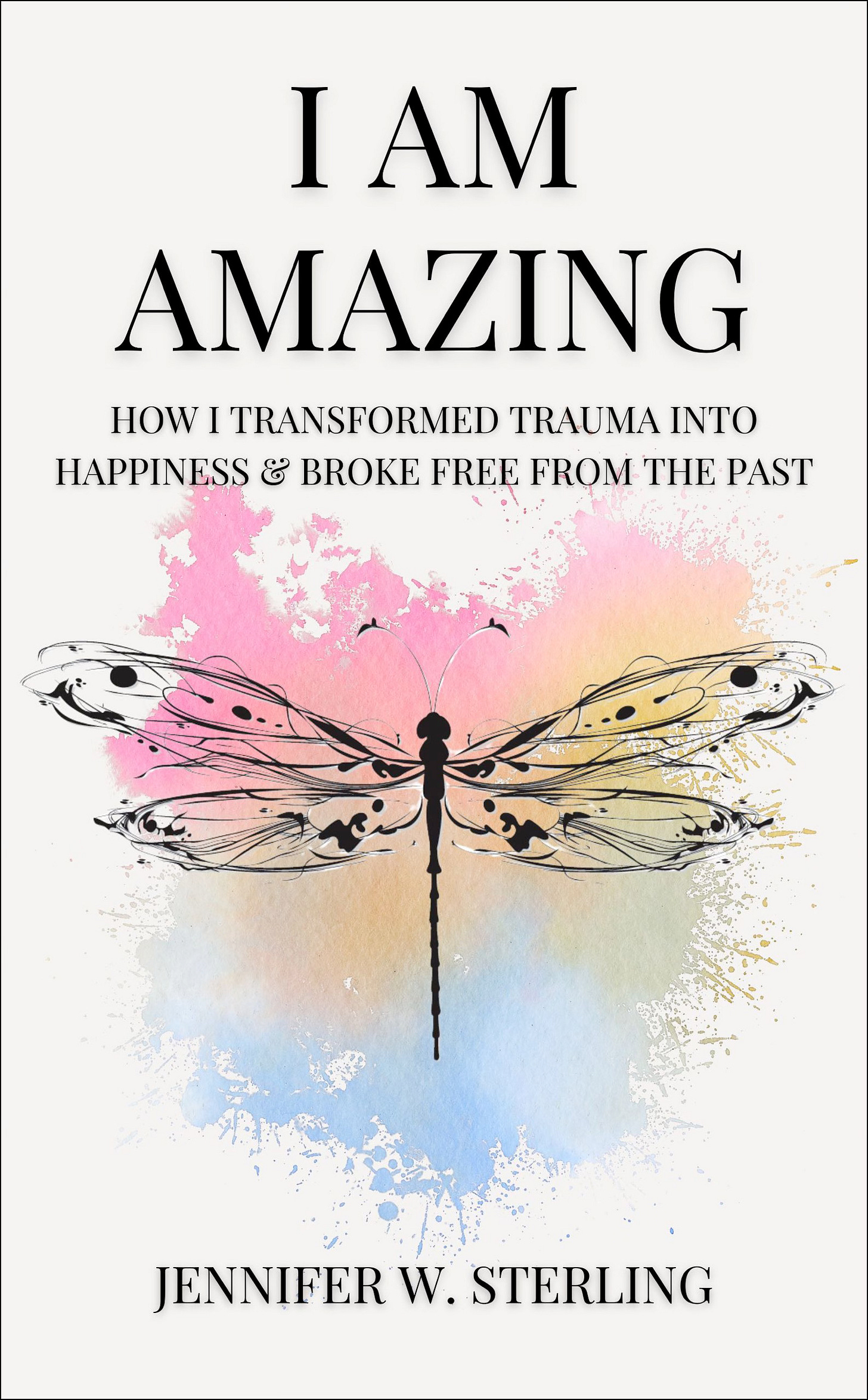15 Ugly Truths That Most People Won’t Tell You But You Need to Hear
The raw version of self-help that actually helps.

I believe every one of these truths. Not because I’m wise.
But because life hit me with them like a brick to the face and eventually, I stopped ducking.
So no, this isn’t motivational fluff. This isn’t “you got this” energy.
This is for the version of you who’s tired of pretending it’s everyone else’s fault.
Most people don’t want the truth. They want comfort.
They want someone to tell them their pain isn’t their problem.
That their mess is justified.
That healing will just happen, as long as you journal, read the Bible and light a $48 candle. (I do and love all of those things so not knocking them)
But comfort is killing you.
Avoidance is expensive.
And waiting to be rescued? That’s just emotional self-abandonment with better PR.
These truths won’t feel good.
Some might piss you off. A few might crack something open.
But if even one of them makes you stop and say “damn…”—then good. That’s where the change starts.
This article’s probably going to ruffle some feathers—hell, the Substack Notes leading up to it already did. So go ahead, bring it. I’m ready.
Let’s begin.
1. You’re going to die.
No one gets out alive! Yet most people live like they’ve got forever.
You don’t. So stop acting like time is unlimited.
Say you’re sorry. Make the call.
Fix what can be fixed. Forgive what can’t.
Forgive yourself while you’re at it.
Tell the truth. Say “I love you.”
Leave the job. Divorce the person who refuses to grow.
Marry the one you think is out of your league.
Be happy—on purpose.
Stop waiting for the right time.
This is the time.
Because once your clock runs out, there’s no refund.
Reflect. Take responsibility. Learn the damn lesson.
Then go live like your life depends on it.
Because it does.
2. Some people are addicted to their own suffering.
They talk or think about their pain nonstop but run from every solution. They defend their misery like it’s their identity…because it is. Healing scares them more than hurting, because it means giving up the excuses they've built their lives around.
They’re not stuck. They’re just more comfortable bleeding than changing. And as long as they stay there, peace will always feel like a threat.
3. Forgiveness is not about them—it’s about you.
You don’t forgive because they apologized. You forgive because you’re done bleeding from a wound they’re not even thinking about anymore.
Confession #1
I’ve had to forgive people who will never apologize to me- people who’ve caused real damage, not just emotional scratches. Some of it was psychological abuse. Some of it was criminal. And forgiving them didn’t excuse what they did. It released me.
When I didn’t forgive, I stayed stuck. My trauma leaked into everything…relationships, sex, self-worth. I blamed them and carried their poison while they moved on. Forgiveness wasn’t about them. It was about taking my life back. And once I did…everything changed.
4. Most people don’t want truth -they want agreement.
They don’t want the mirror. They want the echo. And the second you stop echoing what makes them comfortable, they’ll call you toxic.
Most people want validation, but not the truth. When you hold up the mirror, they flinch. Then they leave or avoid you. And honestly? Let them. I don’t have room for people who can’t give or receive honesty. My circle is small now—for a reason.
5. You can be a good person and still be the villain in someone’s story.
You can be kind, loyal, fair—and still be painted as the devil by someone who needs to be the victim.
Confession #2
I know I’m a good person. But I’ve gone through an ugly divorce where, to him and his flying monkeys, I’m the absolute worst. I could’ve been a mix of Mother Teresa and Princess Diana, and it wouldn’t have mattered. That’s their story to tell. But I stopped caring.
6. You can be healed and still be healing.
You don’t arrive. There’s no moment where everything is fixed and you’re suddenly enlightened and constantly zen like a monk.
Healing is an ongoing practice. Some wounds you tend forever. That’s not failure. That’s life.
7. Suppressing your emotions isn’t strength…it’s mental prison.
You don’t get over something by ignoring it. You bury it alive. It festers. It builds pressure. It gets louder. And eventually, it explodes—usually at the worst time, in the worst way.
"Until you make the unconscious conscious, it will direct your life and you will call it fate." - Carl Jung
In other words:
Ignore your trauma, and it will run your life behind the scenes.
Dodge your patterns, and they’ll just repeat—with different faces and higher stakes.
Healing isn’t about being “positive.” It’s about turning the damn light on.
You can’t fix what you refuse to see.
Feel it now, or deal with the damage later. Those are the only two options.
Confession #3
I used to believe that not thinking or talking about my trauma meant I’d healed. It didn’t. It just meant my trauma had more room to operate subconsciously - controlling everything I did while I pretended I was fine. Suppression kept me trapped in my own body. I only started healing when I faced it and let it burn. And yes, that process included forgiving my parents. Again.
8. No one is coming to save you.
Not your therapist. Not your parents. Not your partner. Not your god. People can support you, sure—but they can’t do the work for you. If you want a different life, you’re the one who has to show up and build it.
9. You can’t help people who don’t want help.
You can love them. You can stand beside them. But you cannot carry them. And you cannot fix someone who’s committed to staying broken. Let go before they drag you under with them.
10. Healing is your responsibility.
Yes, what happened to you wasn’t fair. But now it’s your job to do something with it. Blame will keep you stuck. Ownership will move you forward. You can’t change what they did, but you can change what you do next.
11. You either run your life, or your life runs you.
It’s easy to stay in “this always happens to me” mode. But that story keeps you powerless. You want control? Start taking it. Look at your patterns. Own your choices. Get honest. Or stay stuck.
12. When you stop giving, people will show you who they are.
Generosity doesn’t bring out gratitude. It reveals entitlement. Especially when the giving stops.
Confession #4
There was a time in my life when I was doing really well financially and I shared everything. Paid bills. Bought cars. Paid for trips. Paid for schooling. Helped family & friends anyway I could. I thought I was helping people who appreciated the help. But the moment I stopped handing it out? They vanished. Or worse…turned on me. Now I’m the spoiled one. The stuck-up one. The bitch. Because I stopped being useful. That’s how I learned the hardest truth: some people only love what you give them- not you.
13. You teach people how to treat you.
Every time you stay quiet to “keep the peace,” every time you let a disrespect slide, you’re giving people a manual for how to ignore, drain, and walk all over you. Change the script or get used to the outcome.
14. Even good choices come with a price.
Set a boundary, and someone will get angry. Speak your truth, and someone will leave. Choose yourself, and someone will say you’ve changed. Let them. Growth always comes with loss.
15. Easy choices make hard lives.
It’s easy to avoid the conversation. To stay in the relationship. To say “maybe later.” But those easy choices accumulate—and eventually they cost you everything. Do the hard thing now. Save yourself years of regret.
Let’s Be Honest
If even one of these hit you in the gut, good. That’s your nervous system recognizing that it’s time to stop pretending. Change doesn’t start with clarity. It starts with discomfort.
You’re not stuck because you’re incapable. You’re stuck because comfort feels safer than risk. Even if that comfort is quietly destroying you.
And if you're brave enough to keep going, this was just the beginning.
Coming Next Week:
15 Truths That Will Piss You Off (Before They Set You Free)
Inside:
• Why your “healing journey” is actually just avoidance with better lighting
• The truth about emotional freeloaders and how they’re bleeding you dry
• The real reason you’re still stuck (spoiler: it’s not your childhood)
• And why being “nice” is destroying your boundaries—and your life
And if this made you uncomfortable and you're ready to actually change—not just scroll and sulk—read my book.
I Am Amazing: How I Transformed Trauma Into Happiness & Broke Free From the Past
Not fluffy. Not cute. Just the unfiltered story of how I got out of my own way—and how you can too.




